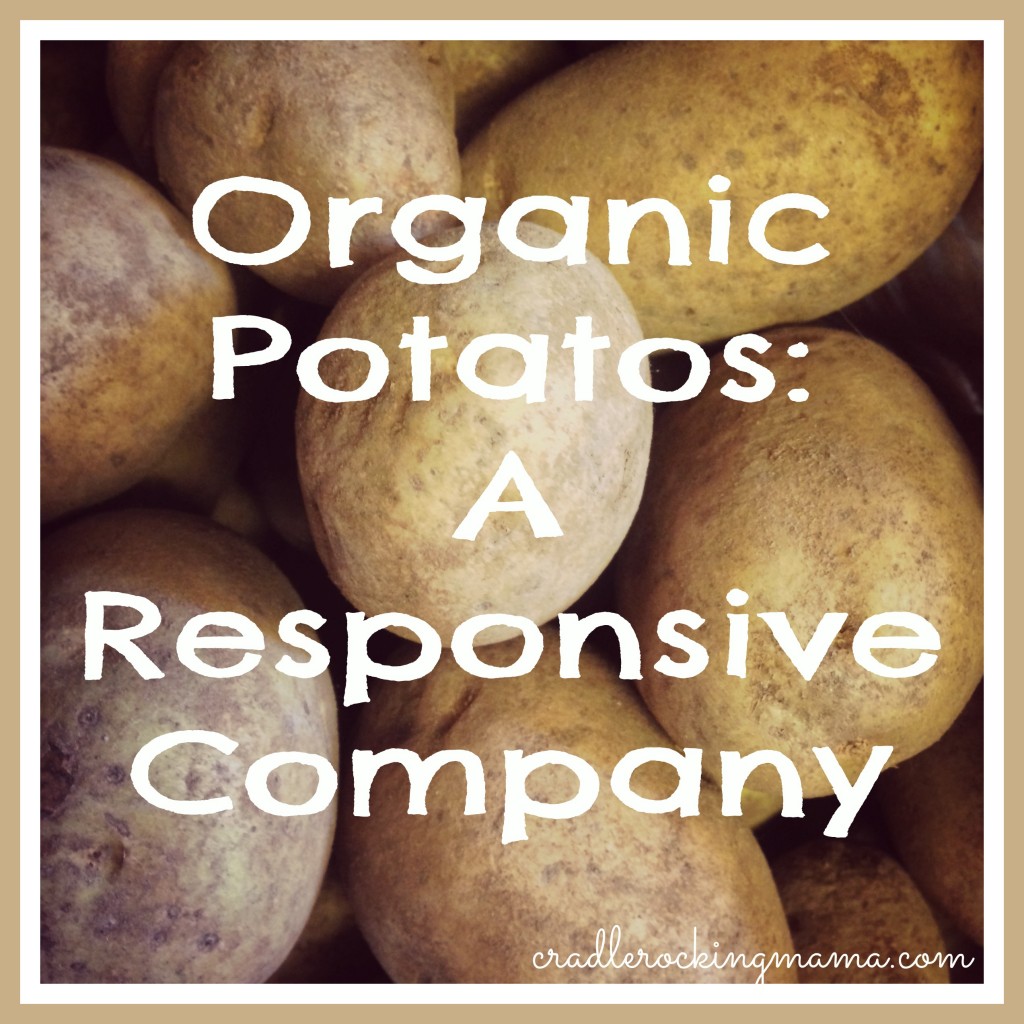Just after I posted about my unsuccessful Farmer’s Market excursion, I got a return phone call from one of the potato distributors my co-op uses.
If you remember, the first one I called wasn’t terribly helpful. She said she “…guess(ed) I could contact my farmers and ask what applications they use, but that will take some time.”
Since she was the rep for the potatos we’d been using, I called about the other potatos available at the co-op.
That is the company that called me back the other day, and I knew I had to share what she explained to me.
This lovely lady represents Farm Fresh Direct out of Monte Vista, Colorado. She said all of their potatos are grown in the San Luis Valley in Colorado, except for a brief period from the end of July through the middle of September when they bring in potatos from out of state (typically Washington state).
The San Luis Valley is the only place in the U.S. where potatos are grown – but NO corn is grown. She said since there is no corn grown in the entire Valley, any cross-contamination from that potential source of contamination is non-existent.
Also, since these potatos are harvested in an area with no corn, cross-contamination from equipment or facilities is also non-existent. (Except, of course, for that brief 5-6 week period in the late summer).
She gave me the link to the Colorado Dept. of Agriculture Organic Certification site so I could read for myself the allowable applications used on organic vegetables, and then made sure I had her direct line in case I had any other questions.
Also, as it turns out, Farm Fresh Direct is also responsible for any potatos sold under the “Grower’s Reserve” label – which are the potatos I’ve been using! Don’t ask me why the other lady I spoke with was so unhelpful; this lady was incredibly helpful!
Now, I read through the guidelines for Organic Certifications, but frankly, my head started to hurt.
There’s an awful lot involved in growing organically! At least, in growing the organic way if you’re government certified, anyway.
At this point, based on Zac’s massive improvements already, I’m willing to say what the lovely potato rep lady said: I can’t guarantee 100% that these potatos are corn-free…but I’m willing to say they’re as corn-free as you’re going to get without growing them yourself.
Darrel and I still plan to grow an acre of potatos for ourselves next year, but until then I feel a lot more comfortable about eating the potatos we’ve been eating.
I’m still scrubbing and peeling them, though.
Just in case.
Although, the biggest concern in potatos is the use of “no bud” sprays, which are all corny. This lady promised me that on their organic potatos, they do not use that spray. They use temperature control and a clove oil application to deter budding.
So…I’ll be continuing to buy regular ol’ organic potatos from my health food co-op until we can finally start harvesting our own potatos next year. While we are surely not eating “just” potatos, these are about as good as we can get until our potato fields take off…and they’re not nearly as bad as I feared.
__________
Anyone know the best potatos to grow in NW Arkansas?











